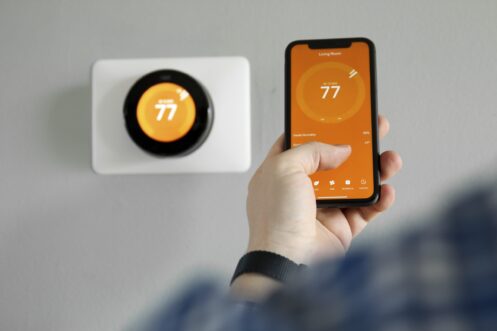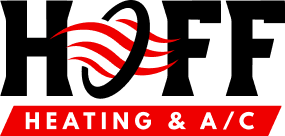Understanding the Leading Trends for HVAC Systems in 2025: What All Homeowners Should Know

Innovative technology has the power to transform our everyday lives. Technological advancements can make our lifestyles more comfortable and efficient, from cell phones to innovative security systems. Today’s most exciting innovations involve the heating, cooling, and ventilation sectors. The latest HVAC updates often include smart features that help reduce energy costs while promoting sustainability. According to Forbes, the HVAC industry has undergone a technological revolution emerging from cutting-edge research and supportive government mandates such as tax credits. A look at the top HVAC trends to look out for in 2025 can help you optimize the new resources available for your home.
Smart HVAC Systems
Smart HVAC systems harness the power of intelligent automation and machine learning. For example, programmable heating and cooling systems enable you to adjust temperature preferences and schedule cycles that maximize energy efficiency and comfort at home. As the smart system learns your routine, it can create an algorithm that automatically adapts to ensure the best performance. For example, if you leave home for work simultaneously each day, smart HVAC units and thermometers can switch to energy-saving mode. The system can then switch to heat or cool your house when you return.
Other smart features include motion-activated sensors that optimize comfort when home occupants enter the room and geolocation functions that select the best settings for your region and climate. With Wi-Fi connectivity and apps, smart systems also let you control settings remotely or receive relevant alerts and updates. Some smart HVAC models also work in tandem with home assistants or platforms like Amazon Alexa, Google Home, or Apple HomeKit. This allows homeowners to coordinate settings through voice commands and create a streamlined household ecosystem. According to Zion Market Research, the market share for smart HVAC appliances will grow to $26.8 billion by 2032, and installing them as early as 2025 will help homeowners stay ahead of the curve.
Super-Efficient Heat Pumps
Heat pumps use electricity to transfer heat from an outside source to warm the interior of your home during the winter. Heat pumps can work in reverse during the summer using a refrigerant mechanism to cool your home. Because these appliances work by transferring instead of generating them, heat pumps may help reduce reliance on natural gas and fossil fuels. The HVAC industry and various governments note that heat pump technology can be key in decarbonizing homes for 2025. The International Energy Agency (IEA) reports that heat pumps can potentially lower global carbon dioxide emissions by a minimum of 500 million tons by the year 2030. To help reach this goal, the current Inflation Reduction Act allows homeowners to claim a tax credit of up to 30% of the cost of installing a heat pump. Many states also offer point-of-sale rebates of up to $8,000 for heat pumps. According to the U.S. Climate Alliance, the goal is to boost heat pump usage in the next five years so that there are at least 20 million new installations by 2030.
In 2025, homeowners can also expect to see an increase in the availability of versatile and highly efficient heat pumps. For example, cold climate heat pumps are easy to maintain and professionally repair and can operate in sub-zero temperatures as low as -15°F. This makes the CCHP a viable option for harsh winters. Other increasingly popular choices include geothermal heat pumps that absorb energy directly from the ground. According to the Department of Energy, these heat pumps are up to 600% more efficient than fossil fuel boilers. There are also hybrid heat pumps that ease the transition from traditional fuel sources and advanced pumps that integrate with solar-power sources or smart home technology.
Renewable Energy Integration
A popular trend involves combining heat pumps or other electric appliances with renewable energy sources like solar or wind power. For example, homeowners can hire a professional to install solar photovoltaic (PV) systems and connect their major HVAC appliances. This allows the home to use clean energy on-site and may lower utility bills by reducing your household’s reliance on the power grid.
Enhanced Indoor Air Quality Solutions
Enhanced indoor air quality (IAQ) is a top priority for 2025. According to the Environmental Protection Agency (EPA), U.S. adults spend up to 90% of their time indoors. Indoor air quality services help protect your home’s occupants from airborne contaminants that can compromise health and productivity. Current innovations in IAQ include smart sensors that detect pollutants and automatically activate purifiers or ventilation technology. Homeowners can also invest in UV-light purifiers that use ultraviolet rays to eliminate pathogens or bacteria. Devices like high-efficiency particulate air (HEPA) filters can trap and remove up to 99.97% of airborne particles that are as small as 0.3 microns, and filters with advanced minimum efficiency reporting value (MERV) ratings can also help keep indoor air breathable and clean.
Energy Recovery Ventilation Systems
Energy recovery ventilation (ERV) systems consistently replace stale indoor air with fresh outdoor air. This exchange process also helps regulate temperature and moisture levels. With healthy air circulation within the home, ERVs can boost home comfort by reducing the likelihood of stuffy rooms. Consistent ventilation can also reduce the strain on your heating and cooling system by eliminating drastic temperature differences that otherwise trigger constant HVAC cycles.
Ductless Mini-Split Systems
Ductless mini-split systems allow you to heat or cool rooms using an indoor air-handling unit paired with an outdoor condenser. This efficient design eliminates the need for ductwork. Ductless mini-splits are ideal for creating different zones within the home so that occupants can heat and cool only the spaces they need to use. This zoning can reduce utility bills and increase indoor comfort by giving homeowners complete control of temperature preferences.
Variable Refrigerant Flow Systems
Variable refrigerant flow (VRF) systems allow homeowners to adjust overall HVAC settings for precise temperature control. This advanced technology uses refrigerant as the primary cooling and heating medium. The technology circulates the refrigerant throughout the system to reach multiple indoor units. Because the refrigerant only activates the heating and cooling needed for specific areas, it can reduce energy consumption because your HVAC system no longer needs to cycle on and off at full power. This decreases overall wear and tear on your HVAC units and may help lower utility bills. VRF technology is an effective way to meet the home’s energy demands. As the technology improves, experts expect increased implementation of VRF systems throughout the United States.
Subscription-Based HVAC Services
Another popular trend is the rise of HVAC subscription services and maintenance plans. Instead of calling an HVAC technician only when there is an emergency or breakdown, many homeowners find signing up for a maintenance agreement or service contract economical. This convenient option gives homeowners peace of mind by providing the upkeep that ensures optimal performance and helps HVAC units last their maximum lifespan.
Contact Us Today
Innovations help take your HVAC system to the next level. From smart systems to eco-friendly models that reduce carbon emissions, the future of heating and cooling technology has significant changes that can improve your home. If you need guidance implementing this technology, the experts are here to help. Hoff Heating & AC provides HVAC services for homes in O’Fallon, MO and surrounding areas. We are the premier service for installing new heat pumps, and we can also service your traditional HVAC units until you are ready to upgrade to a heat pump system. Whether you are interested in geothermal or hybrid heat pumps, we work with all types of systems to help you select the best option. In addition, we are experts in indoor air quality and can install air purifiers, scrubbers, ventilation systems, or germicidal lights. We offer maintenance plans and specialized services like the addition of ductless mini-splits.
No matter the question, we are here to help. Contact Hoff Heating & AC today for all of your HVAC needs.

 Call Us Today
Call Us Today
